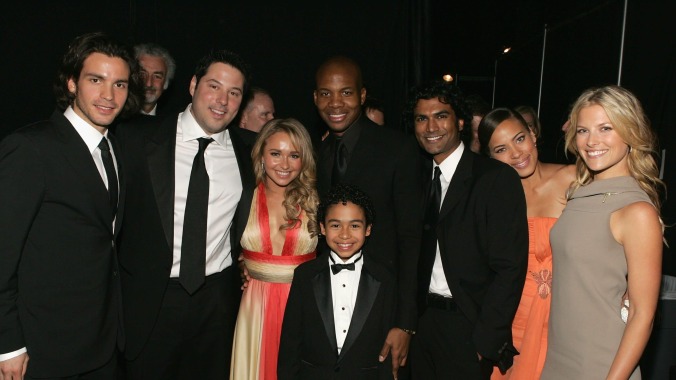Heroes alum Leonard Roberts identifies racism, Ali Larter as his reasons for leaving the show

It’s been 14 years and change since NBC began airing the first season of Heroes, a show that’s gone down in history as one of the worst victims of its own success in recent working memory. Tim Kring’s weird little ode to comic book superheroes became a genuine phenomenon pretty much overnight, one that proved totally unsustainable, not just in future seasons, but, really, by the time even the second half of the first season had begun to air. (Save the cheerleader, kill the show, as it were.) There have been plenty of indications over the years that filming Heroes was rarely, if ever, a Good Time. But we’ve now got direct confirmation of it, with actor Leonard Roberts—who played D.L. Hawkins in this show’s first season—penning a heartfelt, thoughtful, and damning essay for Variety about his time on the show.
Per Roberts’ piece, things didn’t start out well, and only got worse: When the actor (who’d previously had a recurring run on the fourth season of Buffy The Vampire Slayer, and a co-starring role in the 2002 film Drumline, but never a regular series role) first took the part of the matter-phasing D.L., the character was apparently described as “a white man’s nightmare.” Later, Roberts saw the character’s debut pushed from the show’s pilot, to its second episode, to, ultimately, its sixth. And then, when the character did appear, Roberts met his co-star on the series, Ali Larter, and things spiraled down from there.
Roberts doesn’t ever name Larter in the piece (referring to her only as “my co-star”), but it’s clear that, in his view, her apparent dislike for him fueled much of his negative experiences on the series—bad press, uncomfortable photo shoots, and a general sense of his own disposability. All of which culminated with Kring bringing him in after the first season ended to tell him that D.L. was being killed off, largely because of Larter’s unhappiness about their on-screen pairing.
What’s so potent about Roberts’ essay, though, is that its central thesis is not “Ali Larter sure does have it out for me,” or even “Ali Larter is uncomfortable working with black men.” Rather, Roberts takes a much wider view on the show: How producers positioned its admittedly diverse cast as background figures to white stories; how Kring apparently threw up his hands at the idea of finding a way to make Roberts happy (and employed) rather than focusing solely on Larter; on how the show’s culture was frequently touted as “family” while foregrounding white experiences and white lives. It’s a sobering read, as when Roberts reflects thusly on his time there:
I had hoped to one day be able to reflect on my “Heroes” experience from a fulfilled, gainfully employed and less angering place, having left the whole ordeal in my rearview. While that’s not my reality, the larger moment we find ourselves in compels me to share. For this to become a true turning point, we will all have to engage in a more substantive way. I encourage white people to understand that while standing as allies has its place, action is what this moment demands. This applies to the industry as well. The studio can’t spend millions to support Black causes publicly, but have no Black people in leadership roles. The white show creator can’t create a show featuring non-white on-camera talent but disregard non-white voices behind the scenes. The white actor who’s worked for half as long as a comparable actor of color yet makes twice the pay has to be willing to put that on the line to give voice to the disparity in the name of fairness and equity. The representative should respect and live up to that title and fully embrace what it means to act on our behalf. Without the understanding that these issues are all a part of the same conversation, public acts in the name of allyship become as performative as people making social media posts espousing the virtues of equity and inclusion while privately maintaining the status quo or dropping the “Uncle” from a box of rice.
You can read the full piece—including Kring’s response—over at Variety.